“We’ve all come away from it completely different people,” said Isle of Wight College graphic design student James about his recent Turing programme-funded trip to Thailand.
In two weeks, James, 18, got to do things “you wouldn’t normally do on holiday” – hearing from Thai women about why they still farm rice using traditional methods going back countless generations, and meeting Buddhist monks in mountain temples.
He had only ever left the UK once before (on a school trip), and said there was “not a chance” he could have afforded such an adventure without Turing funding.
It’s made me more open to spirituality and other cultures
“I’ve always had a closed mindset, and it opened my mind massively. It’s made me a lot more open to spirituality and understanding other cultures,” James said. “I’ve built up so much mental and physical resilience… there are so many different levels of return on investment for a trip like this.”
Across the country, thousands of FE college students – many of whom had never been abroad before – have had their horizons, and CVs, expanded by visiting places and experiencing cultures vastly different from their own, thanks to the DfE-funded Turing programme.
It was launched in 2020 by education secretary Gavin Williamson, who said the post-Brexit successor to Erasmus+ would “expand opportunities to study abroad and see more students from all backgrounds benefit from the experience”.
Its popularity has grown rapidly: successful project bids from FE colleges almost doubled from 112 in 2022-23 to 214 in 2024-25.
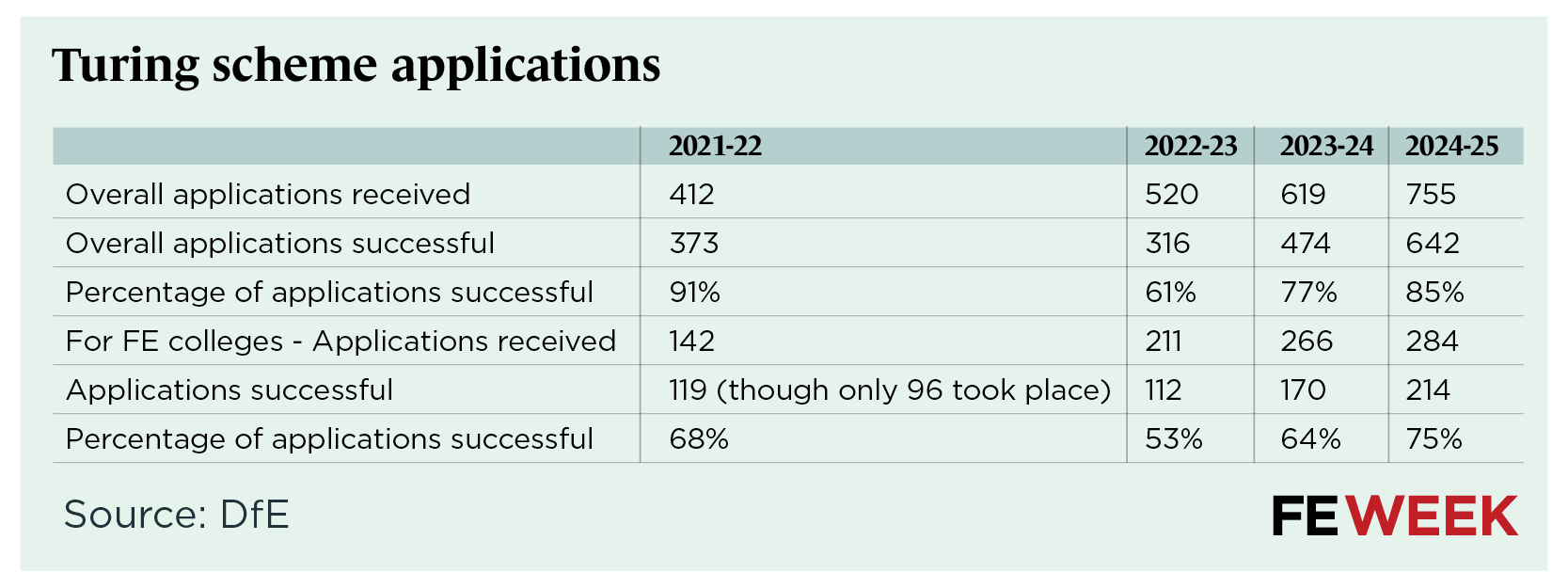
But from the academic year 2025-26, fears are growing that fewer disadvantaged learners will benefit. The living allowance rate has been almost halved, and a new cap has been placed on the overall funding each provider can bid for.
Some fear Turing may be disbanded altogether. The Department for Education is said to have offered it up to the Treasury as part of cost-saving proposals, trimming around £100 million.

Erasmus comparison
The Turing scheme replaced the EU-funded Erasmus+ in 2021, with a promise to reach more disadvantaged students. In that respect, it appears to have succeeded: just 20 per cent of vocational Erasmus+ placements went to disadvantaged students, compared to 60 per cent from FE through Turing.
A DfE evaluation last year found only 23 per cent of FE students would likely have gone abroad without the funding.
And in 2023, 28 per cent of Turing participants were from FE colleges, compared to around 25 per cent in 2019 under Erasmus+.
Turing has a smaller overall budget, but greater reach for UK students.
Erasmus+ UK funding in 2019 totalled £123.76 million (£151.11 million in today’s money), but just 18,305 of 54,619 participants were UK citizens going overseas. In contrast, Turing’s £105.4 million pot for 2024-25 will fund 44,797 UK-based students abroad, including £29.6 million for English FE colleges.
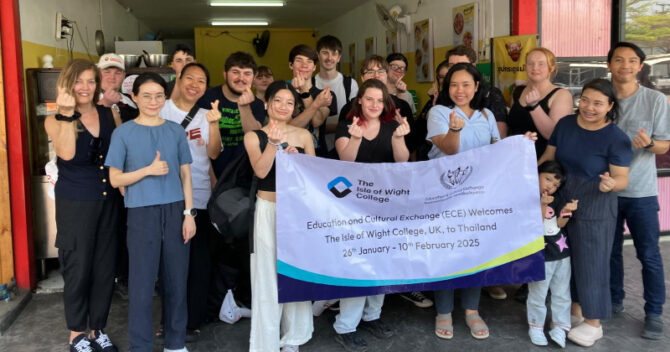
Global reach
Unlike Erasmus+, which focused on the EU, Turing has opened up more distant destinations. In both 2022-23 and 2023-24, five of the 10 most popular destinations were outside the EU.
From 2025-26, 31 more destinations have been added, taking the total to 249.
For Lisa Humphries, associate principal at Chichester College Group (CCG), the scheme’s global footprint is its biggest asset. CCG has sent hospitality and tourism students for work placements at the Sandals Resort in St Lucia, and others for football coaching with street kids in Mumbai, boxing and whale watching in Tenerife and eco-tourism in Bali.
Together with Bournemouth and Poole and Middlesbrough colleges, CCG is taking 95 students this summer to work in a school in Kenya, located in an area of extreme poverty.
Middlesbrough College vice principal Aimey Adamson said that of the 26 students it sent to Bali last year, all but one had never held a passport. “Their first ever flight was Manchester to Hong Kong, how cool is that?”
This year, Middlesbrough is quadrupling its Turing cohort to 117 students, with three-quarters coming from disadvantaged backgrounds.
Some Hull College students on a Caribbean art and design trip last year “had only previously travelled from Hull to Bridlington,” said executive director Andrew Goudie. “They’ve come back absolutely buzzing with confidence.”
This year Hull is sending students to St Lucia, Spain, South Africa and Thailand.

Soft skills building
Although universities have criticised the scheme’s red tape, FE colleges report a more positive experience. Just 23 per cent found the application process difficult, compared to 80 per cent of HE providers, according to DfE’s evaluation report.
Of FE respondents, 89 per cent were ‘satisfied’ with their placement, with 70 per cent ‘very satisfied’. 84 per cent reported an increased ability to get along with people from different cultural backgrounds.
One of the 12 Burton and South Derbyshire College hair and beauty students on a trip to South Korea last year was “taken under the wing” of the Korean boys he met. “He made such good friends, he cried when we left”, said curriculum team leader Heather Jones.
Turing participants in the evaluation report also cited increased confidence, being ‘more well-rounded’ and mature, more friendships and improved sociability.
These are now adults equipped to go anywhere in the world
Isle of Wight College principal Ros Parker recalled how the group that visited Thailand went from “intense nervousness” at the airport to “striding forwards with confidence” upon their return. “These are now adults who are equipped with the skills to go anywhere they want in the world,” she said.
One student had a speech impediment which made her wary to speak. The trip had a “transformational” effect on her self-confidence.
There are other benefits too.
Following a Brighton Met College trip to Tenerife for 12 learners on a boxing programme, teaching and learning manager Mike Burney said attendance was up by over 10 per cent among those who went.
He added: “No student is now behind on their coursework, which is usually a battle at this time of year.”
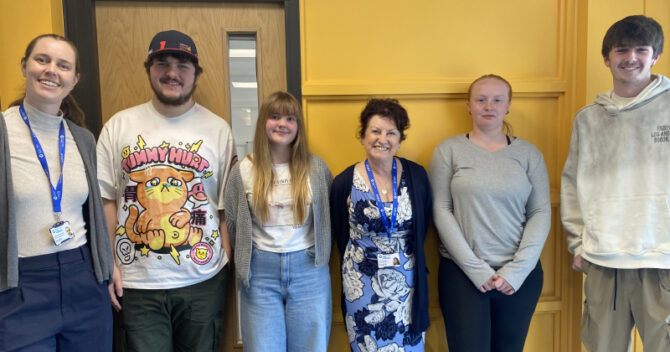
Giving back
Several students have returned from trips determined to support others.
On the Tenerife trip, in which the boxers got to sample mountain training at altitude, star-gazing and diving with turtles and dolphins, one student opened up about the tragic loss of their coach to suicide and others spoke of their experiences of domestic violence.
These conversations led to plans to fund local projects upon their return to raise awareness and support.
Eight of them have since engaged with voluntary community work, fundraising by washing cars and selling pots they have painted.
They got to see something bigger than themselves
“It gave them the opportunity to see something bigger than themselves, thinking about what they can give back to the world,” said Burney.
Gaming students from Darlington College visited Cambodia. They saw the killing fields, a prison and a torture camp, and helped local schoolchildren improve their English. Mitchell Dobson, 18, said the trip offered powerful lessons in gratitude.
“It’s amazing to think that half the population is under the age of 22 and they are still clearing mines,” he said.
The students also helped school children improve their English through storytelling, which Dobson said was “the closest way we could link [the trip] to our course which involves you having to be able to tell a good story”.
They sampled crispy grasshoppers and fermented duck eggs, and endured cold showers and bedroom fans. This “certainly made us appreciate the luxuries of our home”, added Dobson.
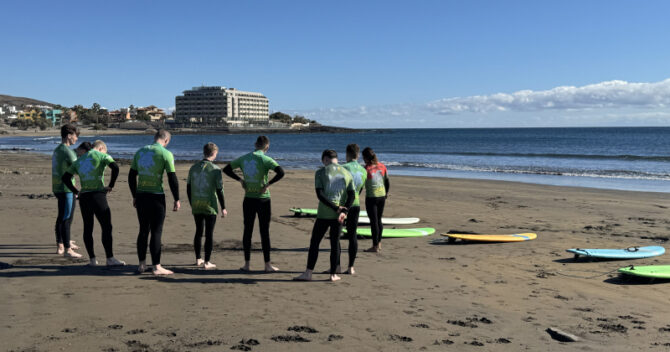
Turing funding cuts and consequences
From 2025-26, providers will be capped at bidding for £205,000 – much less than some received this year. CCG, for example, received £340,000 to fund 280 placements this year but will now need to cut 50 places.
Humphries said: “A smaller college can bid for the same amount. I’ve got seven colleges and 25,000 students. There’s an inequality in the approach.”
Daily cost-of-living allowances have also been slashed. When the programme started, those visiting more expensive counties such as Japan and the US received £109 per day for the first 14 days and £76 thereafter, for less pricey destinations £94-£66 and for the most affordable places £80-£56.
The lowest tier was axed and the rate was cut for the second group (which made up the lion’s share of participants) to £87-£61 last year. For 2025-26 the rate has been almost halved, to £50-£35 for cheaper destinations and £55 to £40 for the priciest places.
Colleges say this is already affecting plans.
Walker said: “The cutbacks have caused a few colleges to have to rethink their programmes and affordability.”
Goudie said Hull College is “already dipping into its own reserves to provide support” for Turing trips, with the current funding rate “insufficient to meet the cost”.
The college is committed to these trips because of the transformational impact
CCG sent four students with significant needs to Kenya last summer. That would be much harder to afford now, Humphries warned.
Some providers have turned to partners to negotiate costs, or to students to fundraise. Middlesbrough students are aiming to raise £1,000 each for their Kenya trip through bake sales and football matches.
Adamson laments the loss of funding but says this gives the students “ownership” of the experience. However, Walker cautions that fundraising takes time, staff, and infrastructure.
Gouldie said Hull will “encourage” students to undertake fundraising, but “we don’t expect that to be what we entirely rely on… it’s unreasonable to expect people from highly deprived areas to find the resource to go on trips when they already face other life challenges. But the college is committed to these trips because of the transformational impact they have on those learners.”
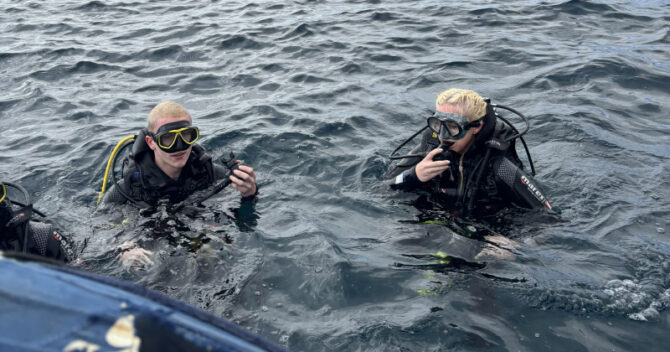
The future
Turing had previously been set to end in 2024-25, with 2025-26 being an extension year.
After that, it faces a cliff-edge.
A DfE spokesperson said that this year had seen “successful applications than ever” for the scheme, with “young people getting invaluable career-building opportunities”.
But they were unable to commit to the long term future of the scheme.
Humphries believes that axing Turing would be “absolutely devastating to our young people who’ve already had so much taken from them in today’s world.”
But Turing’s benefits are impossible for the DfE to properly quantify, with no way of proving that a particular trip was responsible for improving a student’s later life outcomes.
“When we talk about cost versus value, we fail to recognise that the transformational impact that Turing trips have on a person’s employability, confidence and self-esteem is priceless,” said Goudie.
His discussions with AoC and others make him hopeful that if the government does pull the plug, a successor programme will arise – albeit with potential destinations being more Europe-centric and trips being perhaps shorter in duration.
Goudie, who had experience with the Erasmus scheme before Turing, believes that a return to Erasmus would “create more exciting opportunities” for colleges, with “thematic projects looking at innovation in education and pedagogy design impacts of AI”.
“There’s all sorts of things we could begin to explore that across the border, our European colleges are already involved with,” he said.












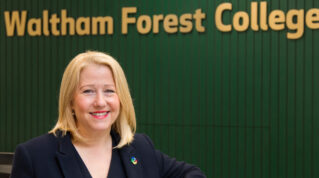


Erasmus + was never limited to Europe. Importantly it was a reciprocal programme unlike Turing that funded only the UK students. The sooner the UK rejoin Erasmus and its assisted + programmes like eTwinning the better!
So disappointing to read this article. I understand with cuts being made across a number of different governments departments, tough decisions need to be made. However, this scheme has proven to be so beneficial for so many students at BCoT in recent years.
In Construction, we have just completed our 4th trip. In previous years with have been to Spain (twice) and Italy. The main focus of these trips was for students to be placed with construction employers, so they could experience different working cultures, as well as experiencing ‘independent’ living (and everything that goes with it) for the first time. Our most recent trip (over Easter) was to Bali, through an organisation called Think Pacific. This trip focused more on relatable sustainability and ‘green’ technologies evolving within the Construction sector, as well as cultural, religious and spiritual aspects, in a country that is a world away from Basingstoke. As with all trips taken, you can see students ‘grow’ before your eyes!
I felt I had to write comment, as losing Turing would be a tragedy.